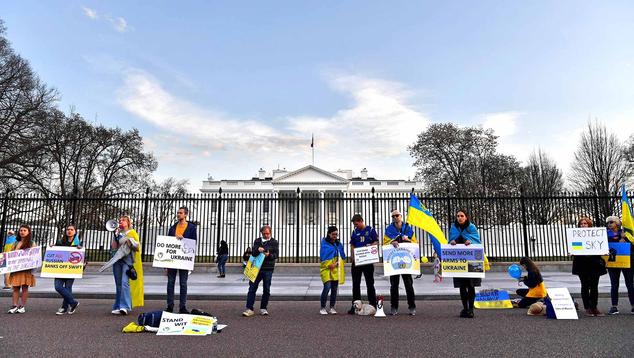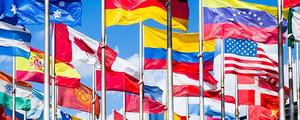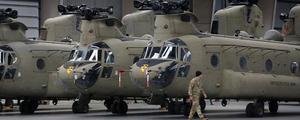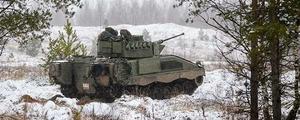A review of available public opinion data establishes several basic conclusions about Americans' views of the situation in Ukraine, recognizing that opinions are fluid and subject to change as the situation there continues to unfold.
Americans Paying Attention, but Ukraine Not Necessarily Top Priority
Americans are following the Ukraine situation closely, as might be imagined given its dominance of daily news coverage. A recent Wall Street Journal poll shows 89% of U.S. voters are following the situation there very or somewhat closely. Pew Research shows 69% of Americans have read or heard a lot about Russia's invasion of Ukraine, with most of the rest saying they have read or heard at least a little.
The fact that Americans are paying close attention to Ukraine does not necessarily translate into perceptions that it is this country's highest priority. The Wall Street Journal poll, for example, shows that twice as many U.S. voters say inflation should be the most important issue for Congress and the president to prioritize as say that about Ukraine. A CBS News poll shows a narrower gap, with inflation just barely beating out the Russian invasion of Ukraine as the issue most chosen by Americans as the nation's top problem. (The WSJ poll asks about priorities for Congress and the president, while the CBS poll asks problems in general).
Gallup's Feb. 1-17 World Affairs poll, conducted as the situation was heating up in Ukraine but before the Feb. 24 invasion, found very few mentions of Ukraine or Russia as the nation's most important problem. (New Gallup data will be out later this month.)
In that same poll, Gallup included the Russia-Ukraine situation in a list of 13 possible threats to the vital interests of the United States. About half of Americans said the conflict in Ukraine is a critical threat, putting it near the bottom of the list. By contrast, over three-quarters viewed cyberterrorism and the development of nuclear weapons by North Korea and by Iran as critical threats.
That's not to say that Americans aren't worried about potential consequences of the war in Ukraine. Several surveys show public concern that nuclear weapons could eventually be involved. There is also concern that the Ukraine situation could lead to an enlarged war in Europe, a global economic recession, cyberattacks on the U.S., and specifically a war between the U.S. and Russia. And over two-thirds of Americans in the CBS News poll say they think Russia plans on invading other countries beyond Ukraine.
Widespread Support for Economic and Other Sanctions
A new Monmouth University survey finds that Americans overwhelmingly say Russia's actions are not justified. In fact, several polls indicate Americans are more likely to say the U.S. and/or the Biden administration is not doing enough in Ukraine as to say the U.S. is doing too much. As a result, large majorities of Americans support the U.S. taking actions against Russia as long as these actions don't involve the commitment of U.S. troops into Ukraine.
Americans' support for economic sanctions against Russia is remarkably high. I say remarkably because there are relatively few policy issues today for which we find three-quarters or higher support for a government policy action, as is the case based on data from a number of recent polls asking about economic sanctions against Russia. This is as close to unanimous public judgment on an issue as we are likely to get. The support for economic sanctions is evident in polls conducted by Quinnipiac, The Wall Street Journal, YouGov, Ipsos, Monmouth and CBS News.
Anytime there is very high overall support for a policy, the mathematics of the situation mean that support is high across all partisan groups. That's the case here. The data vary some by polling organization, with Democrats perhaps a bit more supportive than Republicans, but basically there is strong support for economic sanctions against Russia on both sides of the political aisle. This contrasts strongly with the huge gulfs between Democrats' and Republicans' approval of many other government actions and policies.
Americans also support other non-military actions that could be taken against Russia. These include sending weapons and supplies to Ukraine, creating a no-fly zone over Ukraine, and maintaining a ban on purchasing Russian oil and gas. Several polls show that support for these issues persists even when pollsters remind Americans that it may cost them (the respondents) personally in terms of increased prices. Americans favor admitting Ukrainian refugees into this country if necessary.
Low Support for Active U.S. Military Intervention
Support for active U.S. military intervention in the situation in Ukraine is, as noted, much lower than support for economic sanctions and other actions. Well less than half of Americans at this point are willing to send troops to help defend Ukraine, although the exact sentiment on this issue varies across polling organizations.
Americans do support using U.S. troops to support European and NATO allies as a deterrent to Russia invading those countries. And, before the invasion, Gallup found that almost two-thirds of Americans said the U.S. should maintain its commitment to NATO or increase it. (Americans at that point had more mixed feelings when asked about the job NATO is doing "in trying to solve the problems it has had to face.")
Americans Have Extremely Negative Views of Russia, Putin
As would be supposed given Americans' support for Ukraine in the face of the Russian invasion, the public has very negative opinions of Russia and its leader, Vladimir Putin, with concomitantly positive views of Ukraine and its leader Volodymyr Zelenskyy.
YouGov recently asked the public a derivative of a forced-choice ballot question: "In the conflict between Russia and Ukraine, who do you sympathize with more?" The not-shocking result showed Ukraine "winning" over Russia by 73% to 6%, with the rest saying "neither" or "not sure." A Monmouth poll showed 89% of Americans saying Russia's actions in Ukraine are not justified.
Gallup's February World Affairs update, completed before the Feb. 24 invasion, showed that 85% of Americans have an unfavorable opinion of Russia, putting it near the bottom of the list of 19 countries tested. That 85% unfavorable number is the highest Gallup has recorded in the history of asking about Russia since we began using the current question format in 1989. By contrast, the same Gallup poll shows 62% of Americans holding a favorable opinion of Ukraine. Recent polling by YouGov suggests opinions of Ukraine have become even more positive.
Americans' image of Putin is very negative, as has been the case for years. Gallup's last update was in 2017. Americans at that point had a 13% favorable, 74% unfavorable opinion of the Russian president. Other organizations show that Putin's image has most likely gotten worse, with as many as nine in 10 Americans evincing a negative view of Putin in some polls. A recent Quinnipiac poll found that a majority of Americans were willing to go so far as to label Putin as mentally unstable. The same Quinnipiac poll showed a very positive opinion of Zelenskyy among those who knew enough about him to have an opinion (64% favorable, 6% unfavorable, 29% no opinion).
No Rally Effect for Biden Yet
External threats to the nation can, as history shows, result in an uptick in a U.S. president's approval rating. This has been deemed the "rally effect" -- defined as such because Americans rally around their leader in a time of crisis. The classic example is George W. Bush's approval rating jumping from 51% to 90% after the 9/11 terrorist attacks. Gallup's updated approval rating on President Joe Biden will be out next week. But indications from a number of polls to date show little evidence of a significant bump in Biden's overall approval rating. Pew Research, for example, pegs Biden's rating at 43%, essentially the same as the 41% measured in January.
Americans' more targeted approval of Biden's handling of the Ukraine situation is in almost all instances more positive than his overall job approval rating measured in the same poll. The gap between the two is not large and still leaves Biden with less than majority support for his handling of Ukraine, but clearly shows that he is getting at least some relative credit for his actions.




